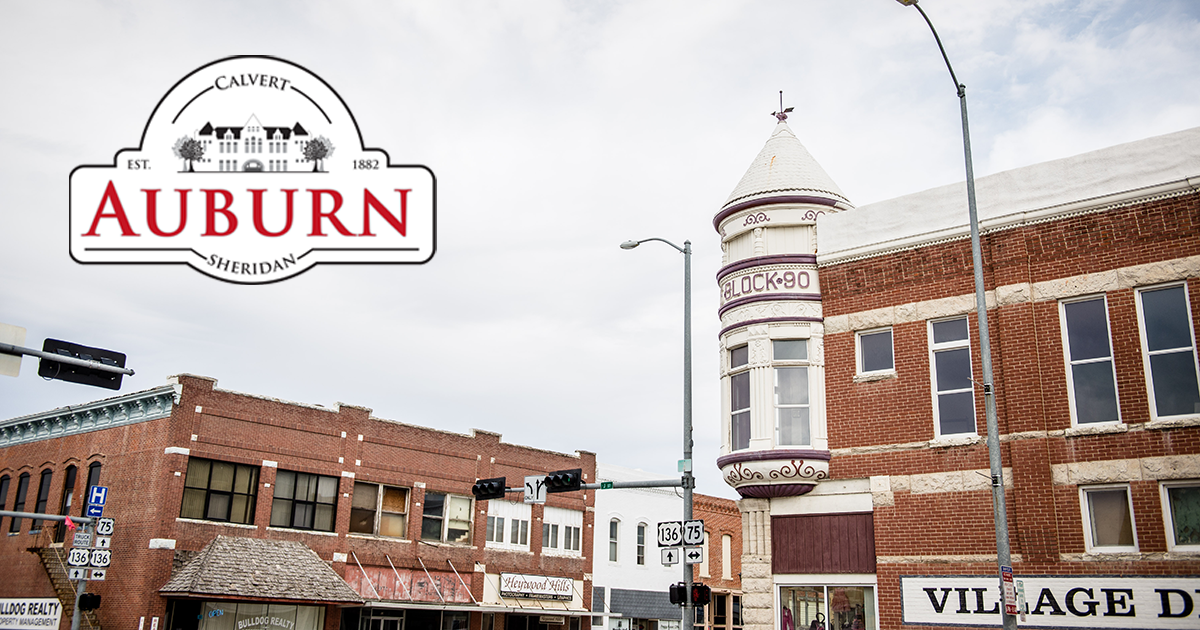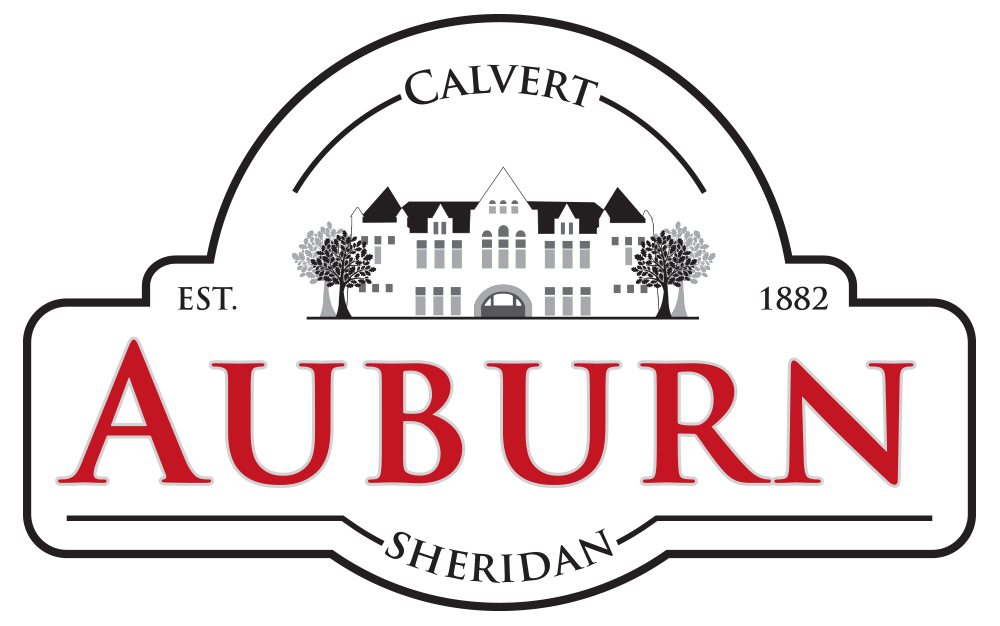Auburn Community Redevelopment Authority (CRA)
The Auburn City Council established the Auburn Community Redevelopment Authority in 2002. The purpose of the CRA is to study and designate certain areas of the city in need of improvement and development for the maximum benefit to the city’s taxpayers. The CRA promotes redevelopment in two ways: Tax Increment Financing (TIF) and grant funding.
Private property owners may approach the CRA to request financing through either mechanism via the TIF application. Eligible projects must be located in areas that have been declared “Blighted and Substandard” by the CRA in accordance with Nebraska’s Community Development Law.

CRA Board Members
Katy Billings
Tim Becker
Joe Casey
David Grant
Darren Wright
Frequently Asked Questions
What is TIF?
Tax increment financing (TIF) is the use of new real property tax dollars created by a project to support the development costs. For example, assume a commercial property is developed and the predevelopment property value is $100,000. After redevelopment, the project is valued at $600,000. Property taxes on the original value of the project ($100,000) continue to be paid to the local taxing entities. The TIF provision allows the property taxes on the increased value (the $500,000 increment) to be paid to the CRA and invested back into public improvements for the project. TIF provisions allows this incremental property tax to be redirected for the project for a period of up to 15 years. At the end of the TIF, the entire tax on the redevelopment project would become part of the general tax base.
What is Blighted and Substandard ?
An area that has been declared blighted and substandard, in accordance with Nebraska state statutes, is defined as one where conditions are present which may have a detrimental effect on public health, safety, morals, or welfare of the neighborhood.
The statutes point to conditions such as inadequate infrastructure, conditions that endanger life and property by fire or other causes, dilapidated buildings, inadequate parking, congestion, and economically or socially unacceptable land uses.
Projects must be in an area that has been declared blighted to be eligible for TIF financing.
Application Process
A redeveloper desiring the use of TIF must submit a completed application form to City Hall. Interested redevelopers can obtain an application form at City Hall or online at www.auburn.ne.gov/cra.
The application and supplemental materials must be sufficient for the CRA to determine that:
- 1) The redevelopment project would not be economically feasible without the use of TIF;
- 2) The redevelopment project would not occur in the City of Auburn without the use of TIF; and
- 3) The costs and benefits of the redevelopment project, including costs and benefits to other affected political subdivisions, the economy of the community, and the demand for public services, are found to be in the long-term best interests of the City.
Core Redevelopment Projects
In addition to stand alone projects, the Community Redevelopment Authority of the City of Auburn offers reimbursement of costs for certain redevelopments projects from revocable grants. These projects are funded via the collection of excess ad valorem real property taxes within the redevelopment area.
The proposed project must be within the Core Redevelopment Area. Click here for a map: Core Redevelopment Area Map
The CRA will consider funding a project via a revocable grant in the total amount up to 25% of the total project cost not to exceed $50,000 per project. Revocable grants will be provided at a 0% interest rate and will be repaid over a period not to exceed ten years and will be repaid monthly via electronic transfer. The CRA will not approve more than $50,000 for any single legal description/address over a five year period.
Eligible projects:
a) Facade Restoration Projects – Courthouse Square and Downtown Auburn. Individual projects concentrated on historic preservation or adaptive reuse of non-historic structures to enhance the architectural character of the late 1880’s commercial districts.
b) Brick Street Rehabilitation – Courthouse Square brick streets and Courthouse Avenue street restoration projects to smooth the brick street surface to remove potholes.
c) Infill of Vacant Parcel – Preplacement of Courthouse Square vacant parcels with new commercial properties.
d) Alley Resurfacing – Commercial areas in the Courthouse Square, downtown and the “J” Street highway corridor alley resurfacing.
e) Parking Areas – Paving of parking areas in the rear of commercial properties.
f) Infrastructure Improvements/Expansions – Repair/replacement of water and sanitary sewer mains that are either undersized by current standards, or are between 70 and 90 years of age and are composed of materials that are prone to breakage. 1) 11th Street between B and H Streets that are 4 inches in diameter and range between 50 to 90 years of age. 2) East/west mains south of downtown along 13th, 14th, 15th, 17th and 18th Streets, and north/south mains along M Street between 19th and 21st Streets that are 4 inches in diameter and range in age between 50 to 90 years.
g) Roof, streets, curb and gutters – Repair or replace deteriorated and/or dilapidated roofs, streets, curbs, and gutters.
h) Sidewalks – Establish sidewalks in areas that currently lack sidewalks, and repair/replace sidewalks that are in fair to poor condition.
i) Removal of substantially dilapidated and substandard structures within the redevelopment area not cost effective to rehabilitate.
j) Rehabilitate residential, commercial and industrial properties that are cost effective to renovate.
k) Establish a housing rehabilitation program in targeted neighborhoods of the of community where Tax Increment Financing, Community Development Block Grants and local funding could be utilized as incentives for property improvements.
l) Develop a plan for screening and/or buffering of industrial areas from outside storage of materials from residential and public land uses.
For redevelopment of Nuisance Properties, the CRA will consider funding a project via a revocable grant in the total amount up to 25% of the total project cost not to exceed $50,000 per project. Revocable grants will be provided at a 0% interest rate and will be repaid over a period not to exceed ten years and will be repaid monthly via electronic transfer. The CRA will not approve more than $50,000 for any single legal description/address over a five year period.
Eligible projects:
m) Targeted Residential Redevelopment – encourage the removal and/or rehabilitation of the substantially dilapidated and substandard residential structures within the redevelopment area that have been identified as nuisances by the City.

